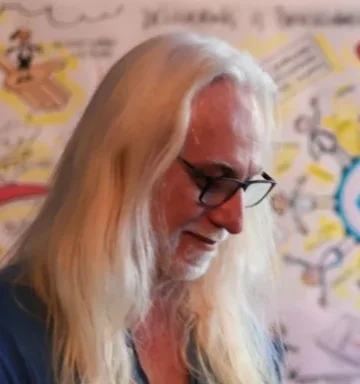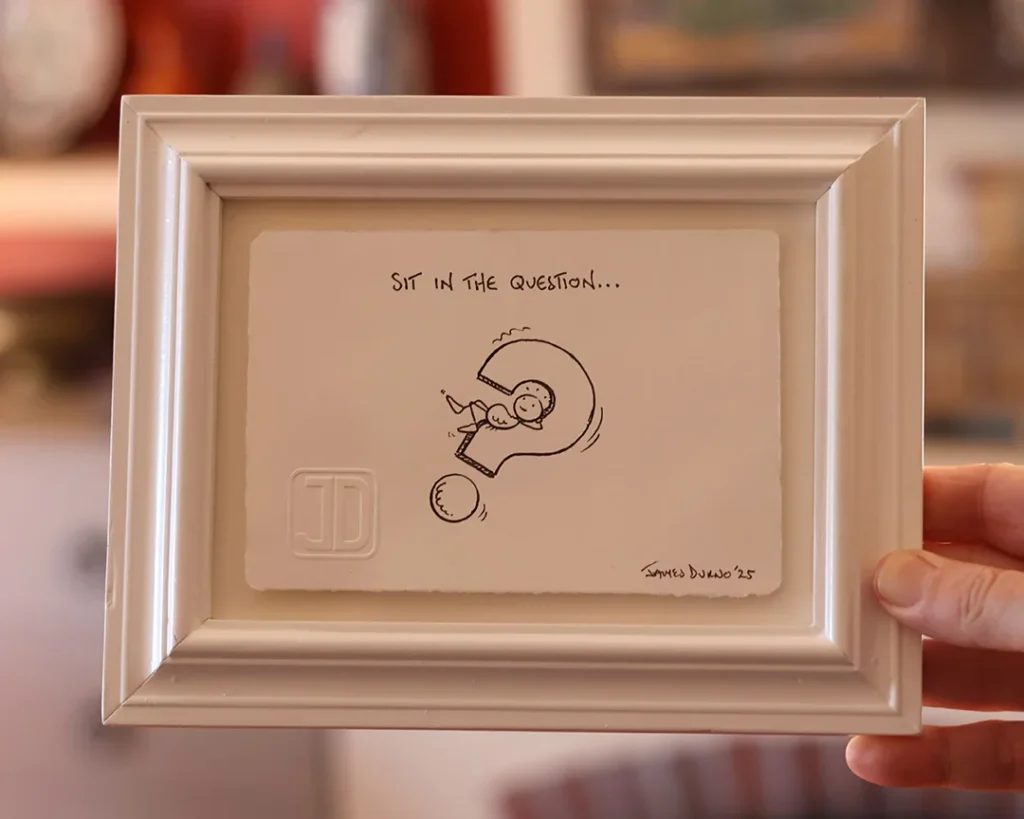
To sit in the question is to resist the urge for immediate answers and instead dwell in uncertainty with curiosity. It’s a deliberate act of patience. A willingness to hold space for ambiguity and let a question breathe, evolve, and shape your perspective over time.

This can feel uncomfortable, as we are wired for quick solutions. But some questions are too big, too complex, too layered, too alive, to be resolved at once. They ask us to slow down, pause, and listen deeply.
Sitting in the question isn’t passive. It’s an active, reflective stance. A posture of openness. It means letting a question travel with you… and challenge you. In that quiet tension, insight often emerges without being forced.
To sit in the question is a core part of visual thinking. It is the space where insight begins to take shape, before the edges are defined and the lines are drawn. As a visual communicator, it means resisting the urge to resolve too quickly and instead allowing the question to unfold visually, spatially, and emotionally.
Some questions don’t need immediate answers. They need to be viewed from different angles, mapped out, navigated, and experienced. Sitting in the question invites curiosity over certainty. It’s an active pause, and a chance to observe patterns, hold tensions, and explore connections that may not be obvious at first glance.
This posture of openness is what allows deeper understanding to emerge. Not everything can or should be made clear right away. Sometimes, clarity is the result of staying with complexity long enough for form and meaning to surface…
And in that space… in the margins, in sketchbooks, on whiteboards, in visual conversations, the answers and solutions gradually come into focus.
To sit in the question, then, is not a delay in the creative process…
It is the Process.